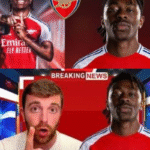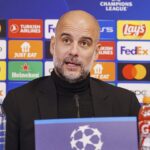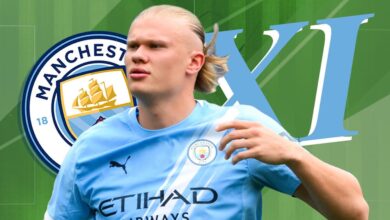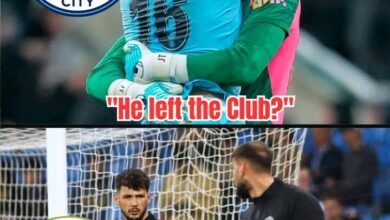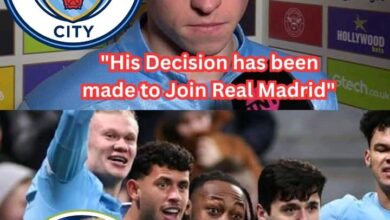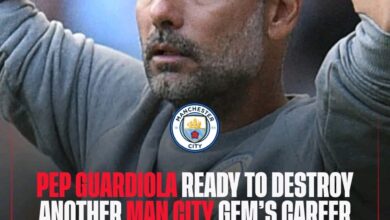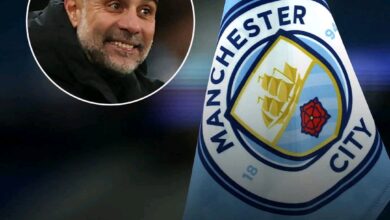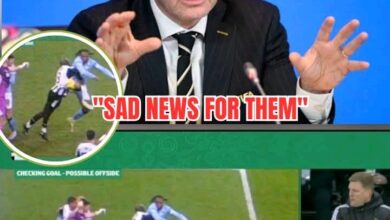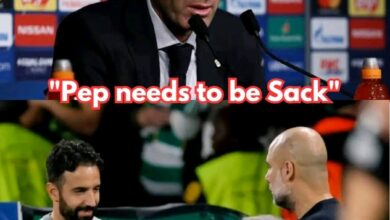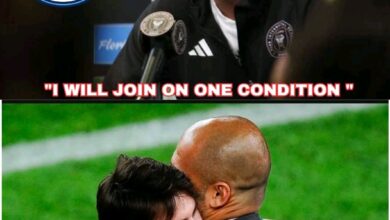Liverpool Star Confirmed he is leaving after the arrival of new player

Liverpool Football Club is no stranger to dramatic summers. Every transfer window brings its own dose of rumours, twists, and heartbreak. But this one has been different. This one has been louder, more chaotic, and more painful. The Merseysiders, who for years have been seen as one of the smartest clubs in Europe when it comes to transfers, suddenly found themselves in a whirlwind of activity. The summer has been fast, frenetic, and filled with noise, but through all the excitement there has been one painful truth — some of the club’s most loved players are gone. Luis Díaz, Caoimhín Kelleher, Darwin Núñez and Jarell Quansah, four players who each carried their own piece of Liverpool’s identity, have all departed Anfield for big money. The accountants smile, the owners talk of sustainability, but the fans are left with a hole in their hearts that no amount of cash can fill.
To truly understand the weight of this summer, you have to start with the story of Luis Díaz. The Colombian winger was not just a footballer, he was a fighter. His journey to Anfield was one of resilience and passion. He had grown up playing barefoot in the streets, a boy who fought against poverty and hunger to chase his dream. When Liverpool signed him from Porto, many fans were unsure. But from his very first game, he made Anfield believe. He ran at defenders with fearless energy, twisting and turning with the kind of unpredictability that reminded supporters of the great South American attackers who had lit up the Premier League in the past. He scored crucial goals, he lifted the team when they were tired, and he brought joy every time he touched the ball. Díaz was more than a player; he was a symbol of hope, the kind of story Liverpool fans love because it mirrored the club’s own history — rising against the odds, fighting for every inch. So when news broke that Díaz had been sold, it felt like a betrayal. Yes, the fee was big. Yes, the club could argue it was smart business. But how do you put a price on passion? How do you replace a player who gave his whole heart every time he wore the shirt? The fans didn’t see numbers, they saw memories — goals at Anfield, moments of magic, and the roar of the crowd. Those memories will remain, but the player is gone.
If Díaz’s exit was a shock, the departure of Caoimhín Kelleher was a deep wound. The Irish goalkeeper had been patient, loyal, and humble. In an era where young players often demand immediate game time, Kelleher waited his turn. He trained behind Alisson Becker, one of the best in the world, and he never complained. When he was called upon, he delivered. His crowning moment came in the Carabao Cup final against Chelsea. The pressure was immense, the stage was huge, and yet Kelleher stood tall. He saved penalties, he kept calm, and he wrote his name into Liverpool history by helping the club lift silverware. That day, he wasn’t a backup, he was a hero. He proved he had the quality to be a first-choice keeper anywhere. For many Liverpool fans, Kelleher was more than just a number two. He was a symbol of loyalty, of patience, of what it means to grow within the club and wait for your chance. And yet, football can be cruel. Opportunities at the top are limited, and Kelleher wanted more. He wanted to play every week, to feel the joy of being trusted as the first name on the team sheet. When the offer came, Liverpool let him go. It made sense for his career, and the money was good. But for the fans, it was heartbreaking. They weren’t just losing a goalkeeper, they were losing a piece of the club’s soul.
Then there was Darwin Núñez, perhaps the most divisive player of the lot. When Liverpool signed him for a huge fee from Benfica, expectations were sky-high. Here was a striker with speed, strength, and raw power. His record in Portugal was impressive, and he seemed like the perfect answer to rival Erling Haaland at Manchester City. But Darwin’s time at Liverpool was a rollercoaster. On his best days, he was unstoppable. He scored brilliant goals, made defenders panic, and brought chaos to every game he played. On his worst days, he was frustrating. He missed sitters, he lost his cool, and he became the target of critics who questioned his finishing. But what nobody could deny was that he brought energy. Whenever Núñez stepped onto the pitch, something happened. Good or bad, he made people feel. That is rare in football, and it is why many fans loved him despite his flaws. His departure left mixed emotions. Some felt it was the right time, that he never fully settled and that the money was too good to refuse. Others felt Liverpool were giving up too soon, selling a striker who still had so much potential to grow. For those who defended him, losing Darwin was like closing a book halfway through the story.
And then came the name that truly hurt the future — Jarell Quansah. Young, talented, and full of promise, Quansah was supposed to be the next in line to carry Liverpool’s defensive tradition. He had come through the academy, he had worn the badge since his youth, and he had shown composure beyond his years when he stepped into the first team. In him, fans saw the future. He wasn’t just another player; he was one of their own, a boy who had grown up dreaming of Anfield and had the chance to make it a reality. To see him sold for money felt like the ultimate betrayal. It wasn’t just about losing a defender; it was about losing a dream, a connection between the academy and the first team, a hope for tomorrow. Supporters asked themselves: why sell the future when you could build around it? Why take the money now and sacrifice what he could become? The questions hung in the air, but the answers never came.
Put together, these four sales created a storm. Liverpool had earned big fees, yes, but the cost was heavy. The fans felt it in their hearts, and the mood around the club changed. Social media was flooded with debates. Some argued the sales were part of a clever plan, that the money would be reinvested in fresh talent, that Liverpool were simply preparing for a new era. Others were furious, saying the club had lost its way, that the owners cared more about profit than trophies, that the team was weaker than before. The atmosphere became tense, uncertain, and filled with doubt.
But football never stops. The new season looms, and with it comes questions. Who will replace Díaz’s magic on the wing? Who will provide the backup when Alisson is unavailable now that Kelleher is gone? Who will bring the chaos Núñez once offered in attack? Who will be the young defender stepping up if Quansah has left? These questions cannot be answered by money alone. They require vision, planning, and bold decisions. Liverpool must now prove that their sales were not mistakes but stepping stones to something bigger.
And yet, even in the midst of the pain, hope remains. Because that is what Liverpool is built on — hope. The fans will still fill Anfield. They will still sing “You’ll Never Walk Alone.” They will still believe, because belief is what keeps the club alive. The memory of Díaz, Kelleher, Núñez, and Quansah will live on, but new heroes will rise. The Kop has seen legends come and go, and it has always found new ones to adore. This summer may have been brutal, but it may also be the beginning of a new story, one that is yet to be written.
For now, though, the truth cannot be denied. Liverpool’s frenetic summer has been punctuated by incredible sales, and the pain of those departures has been felt deeply across Merseyside. The future will tell if it was worth it


